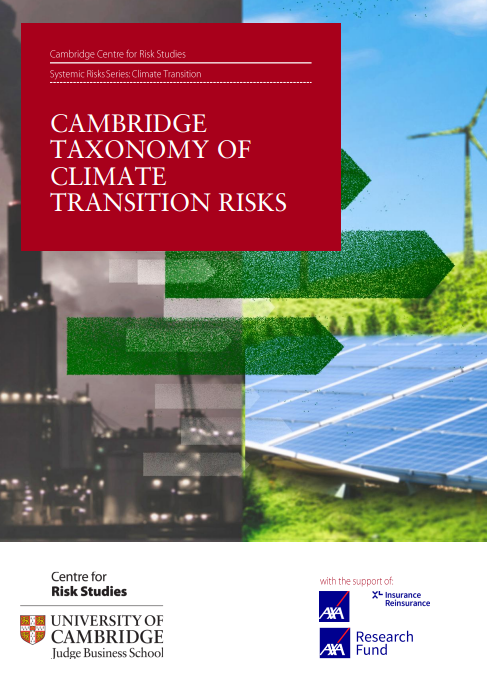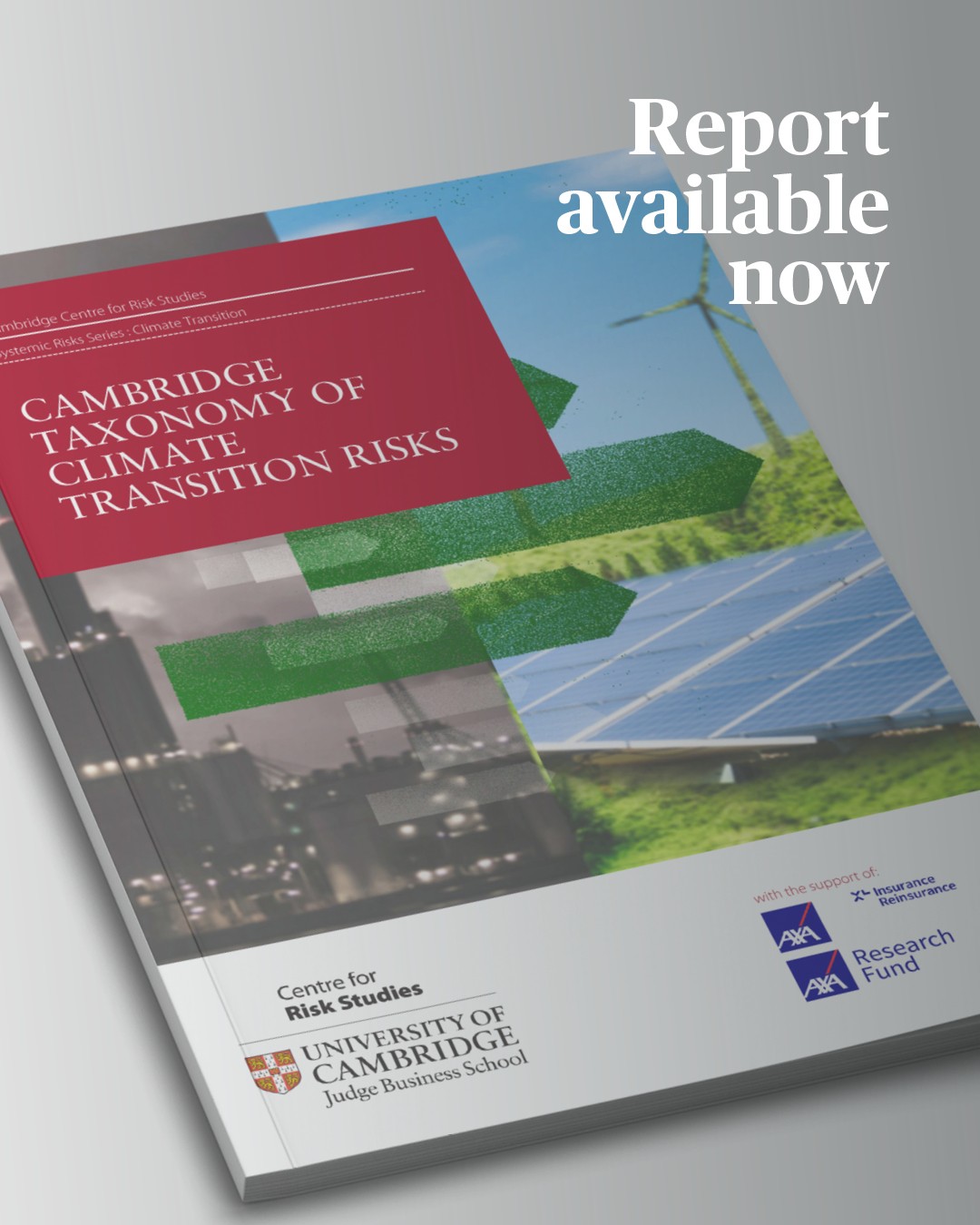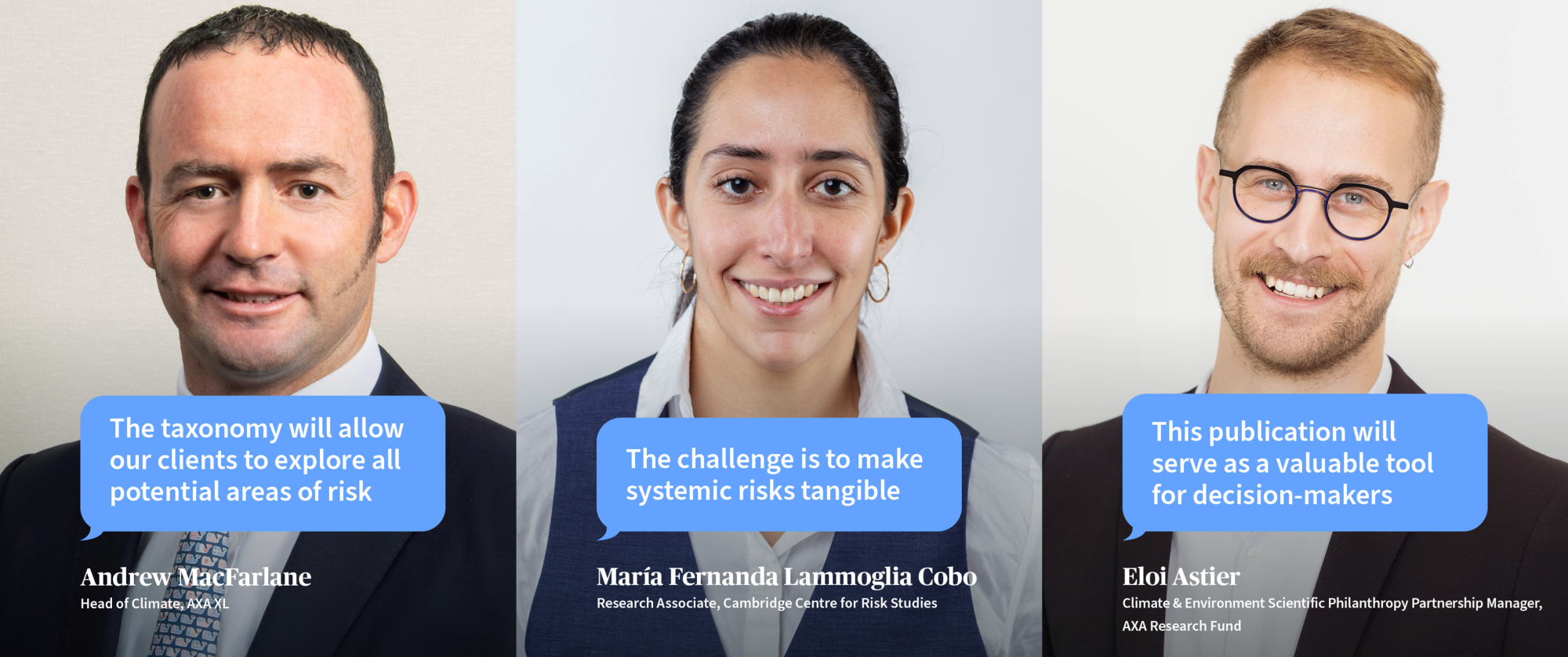Launch of New Taxonomy to Help Businesses Identify and Categorize Climate Transition Risks

Climate risk taxonomy highlights systemic threats in transition to low-carbon economy
AXA XL and the AXA Research Fund have supported the publication of a new report produced by the Cambridge Centre for Risk Studies (CCRS), providing a comprehensive framework to help businesses identify, categorise and prioritise the risks associated with the transition to a low-carbon economy.
The Cambridge Taxonomy of Climate Transition Risks report is aimed at business leaders and risk managers and builds on earlier research, Cambridge Taxonomy of Business Risks published by the CCRS nearly a decade ago.
The new report reveals:
the interconnected nature of the physical and transition impacts in relation to progressing towards a low-carbon economy,
that addressing the transition requires acknowledging the end of “business-as-usual”,
that organisations have much to gain by taking a more proactive approach.
The report encompasses trends occurring during the transition and lists risks under six classes - financial, geopolitical, technological, environmental, social and governance - all of which facilitate strategic risk management. These risks can be systemic and are often connected.

The taxonomy can be used to help identify blind spots from existing analysis or explore the interconnected systemic nature of some of the risks associated with the transition, for example, potential impacts associated with heatwaves and the effects that they could have on supply chains and food security.
Commenting on the publication of the report, Andrew MacFarlane, Head of Climate at AXA XL, said: "We are delighted to be working with the Cambridge Centre for Risk Studies. Climate transition is one of the major challenges that our clients face in the next decade, and this taxonomy will allow them to explore potential areas of risk that they may be exposed to and gives us the opportunity to continue to explore how we might be able to support them on their transition journey."
Eloi Astier, Climate & Environment Scientific Philanthropy Partnership Manager at the AXA Research Fund, added: "The AXA Research Fund is committed to supporting collaborative research that enhances our understanding of key global risks and contributes to building a more sustainable society. This taxonomy will serve as a valuable tool for decision-makers and practitioners involved in the transition."
Maria Fernanda Lammoglia Cobo, Research Associate at the Cambridge Centre for Risk Studies, commented: "The challenge is to make systemic risks tangible to the present and thus promote action, agency and strategic risk management. By listing transition-related risks, the taxonomy facilitates blind spot analysis, brainstorming new products and the identification of emerging business opportunities."

The new research comes from the Cambridge Systemic Risks Hub (CSRH), a collaboration between the Cambridge Centre for Risk Studies and partners interested in the impact of systemic threats on the business community. The CSRH focuses on key threats to global business and national economies, raising awareness of emergent systemic risks and creating business-relevant tools to embed resilience. The Climate Transition Pillar sponsored by AXA XL and the AXA Research Fund, aims to support the development of stronger response capabilities by mapping the risks of transition to major businesses and exploring potential outcomes that could arise in the upcoming decade.
About AXA XL
AXA XL, the property & casualty and specialty risk division of AXA, provides insurance and risk management products and services for mid-sized companies through to large multinationals, and reinsurance solutions to insurance companies globally. To learn more, visit www.axaxl.com
About The Cambridge Centre For Risk Studies at The University of Cambridge Judge Business School
The Cambridge Centre for Risk Studies is based within the University of Cambridge Judge Business School. The Centre works closely with business partners in tackling complex issues of management science in risk. This policy of deep engagement has enabled the Centre to develop relevant solutions for businesses. The Centre’s leadership combines academic excellence with industry experience. Click here for more information.
